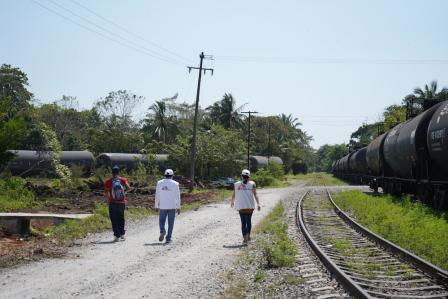“We are fleeing so they won't kill us, but even that doesn't matter. I cannot protect my children.”
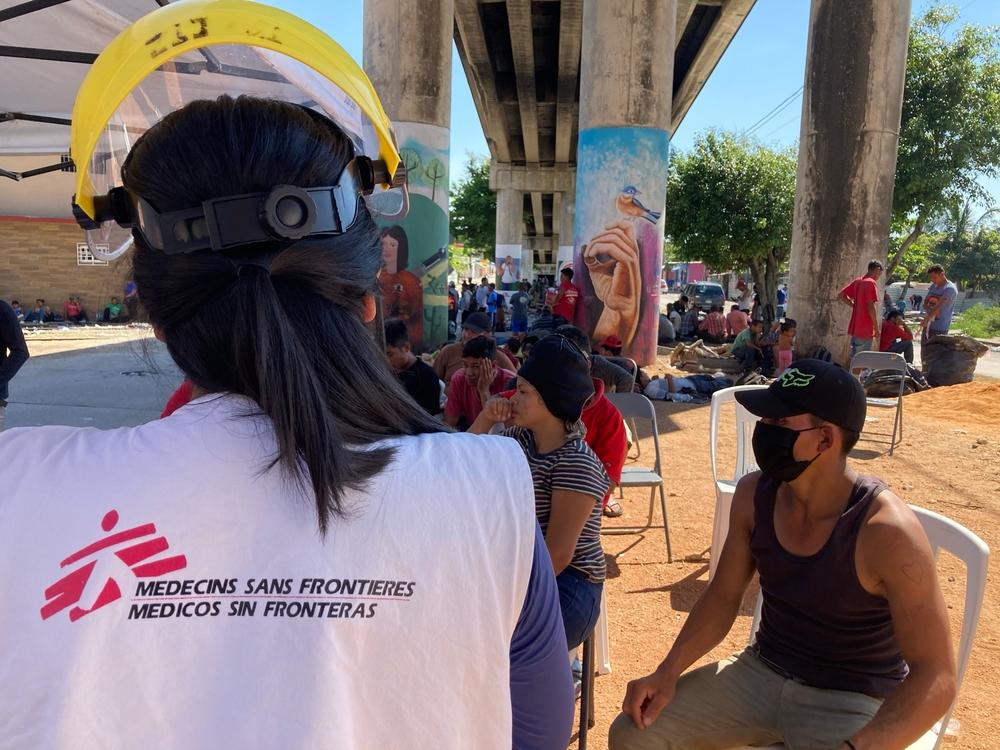
Doctors Without Borders has witnessed both repeated raids and arbitrary arrests on Mexico's southern border. © Yesika Ocampo/MSF
Maria is 33 years old, from Guatemala. Like many other asylum seekers, she and her husband are trying to find a better life for their family.
They went to my house and tried to take my daughter from me. My son was detained by a man who told him that his father had to cooperate. They told us they were going to kill my children. We decided to leave the country for our children's sake. The four of us left together and we travelled across Mexico. We faced difficulties, we slept on the floor. Very difficult situations, but we came with the idea that if we could put up with it all we would be better off.
We walked to the southern border of Mexico and there we took a bus to Mexico City. The next day we took buses to Monterrey and Reynosa, where immigration agents grabbed my husband and my son. My daughter and I were not detained so I continued, and my husband ended up in a shelter in Monterrey. I continued because what was I going to do with my daughter? Three days later, I crossed the river into the United States.
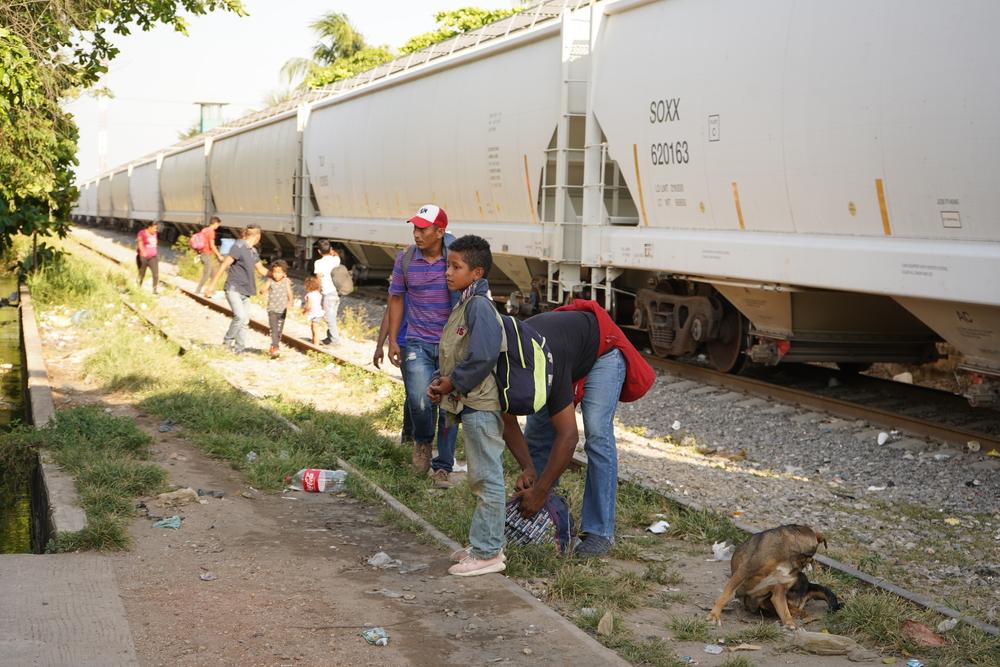
In recent months, the number of entire families with children and unaccompanied minors arriving at the southern border of Mexico has increased. © Yesika Ocampo/MSF
It was very difficult to get on those rafts at night, without any light. We walked in the hills, at the river we got on a raft, we got off on the other side, in the US, and on the shore we walked along a path. We were stopped by patrols. They shone torches at us. They began to choose people, and depending on the age of the children, they separated us. My daughter is four years old. They put me on a bus and after an hour they gave us water and some biscuits. The children were seen by a doctor, they took fingerprints, photos and then they put us in a large tent with some little rooms with mats. As they were going to give me a mat they said no, that I had to wait.
A policewoman arrived with a file with my photo, she said that they were going to move us to another centre where they would process me more quickly because they were overloaded there. Another bus. They took us to a place [which was] like a small police station with a cell. There they put all the women in with the children. We slept on the floor. They gave the children juice, but they didn't eat because they gave them some trays of vegetables that smelled bad. I gave my daughter a taste and she started vomiting. I didn't give her any more because if she vomited more she was going to dehydrate. No more than one change of clothes is allowed. They take away clothes that aren’t allowed and throw them away. They also take the children’s clothing, even if it is cold.
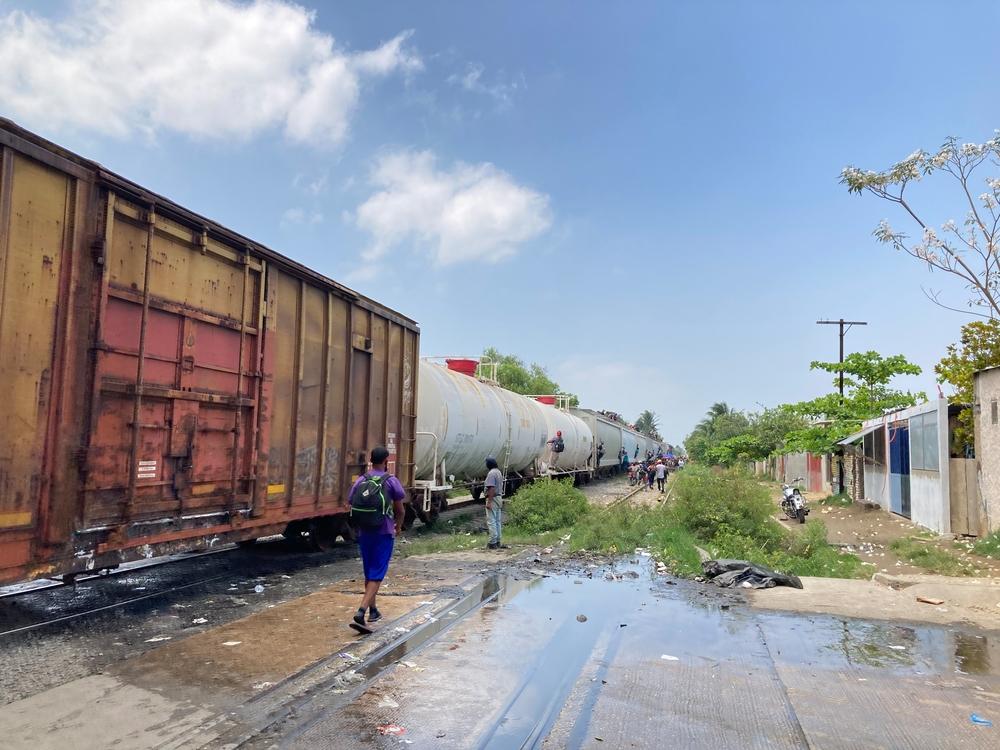
Massive raids and arbitrary arrests have increased in areas of concentration of migrants, including near Doctors Without Borders medical care points, especially in Coatzacoalcos (Veracruz), a railroad crossing widely used by the population in transit. © Yesika Ocampo/MSF
They put us on a bus around three in the morning. That was concerning because we were saying, 'We have not been processed, they never asked us anything or took a statement from us, nor did they ask us where we were going in the United States.' Then I realized it: from the bus I saw the river again and an officer with a black shirt and a Mexican flag.
We approached him and he asked us: “What are you doing here? Why are they sending me Hondurans?” I told him that I am from Guatemala and he replied, “It does not matter, you are not Mexican and I do not know why they are sending you.” Then another woman started crying and he told her: “The United States does not want you, if they are sending you back it is because they don't want you there.”
They took us to the migration centre. I told them that I didn't know what I was going to do, I didn't have anything, no money, no phone. I had entered the US through the Reynosa border and they returned me to the Nuevo Laredo border. I had no way of communicating with anyone. There were about 20 mothers with our children. Two buses arrived to take us to a shelter, many of us agreed to go because we had children of different ages, some were carrying babies.
In the municipal shelter we received help. I was able to communicate with my family. My husband told me that he was in pain, that he had seen a doctor and that he needed surgery. We do not have the resources to pay for surgery. He is looking after my son and if something happens to him, my son will be left alone in the shelter.
You believe that story that they tell you that the trip is going to be three days and that the United States immigration [system] will welcome you and it is not true. You come with the idea of a future to keep your children safe and find work. We thought that the president of the United States had said 100 days. What we did not understand is that it was 100 days in which he was not going to deport people. We were under the impression that in those 100 days we would be able to enter the country, but it is not like that. And many people are sending their children alone, when I crossed the river there were many children who were alone.
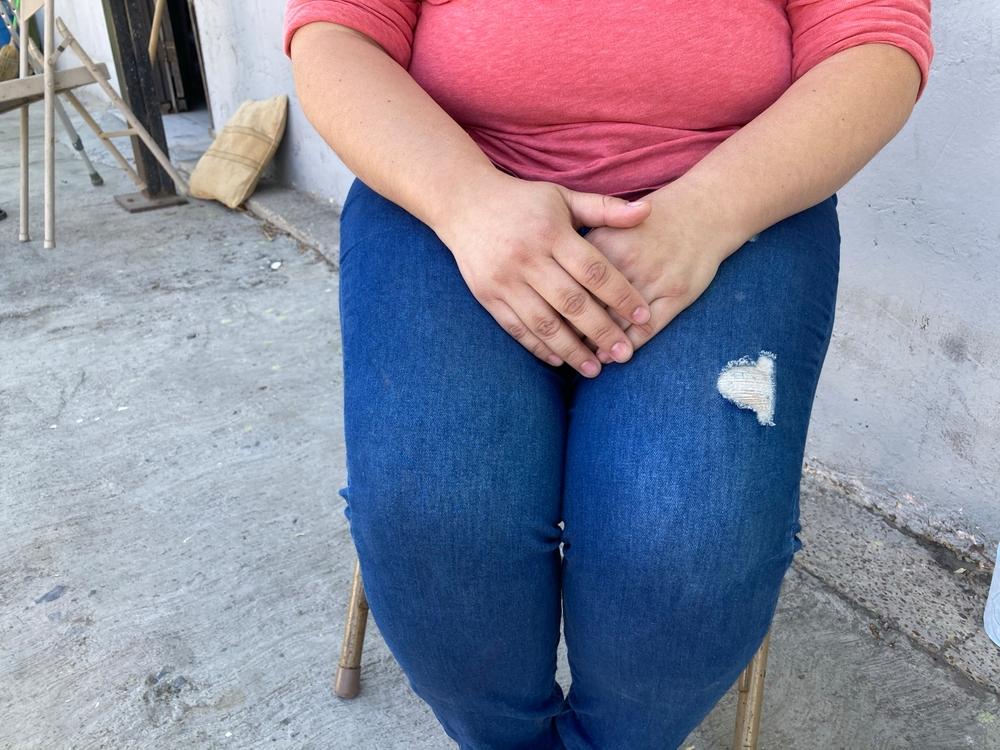
Maria, 33, fled with her husband and two children, due to gang threats. They crossed Guatemala and Mexico. When they reached the northern border, in the city of Reynosa, immigration agents detained her husband and their 12-year-old son. Despite this, she decided to cross the river with her 4-year-old girl and they were arrested by the Bordel Patrol and taken to a detention center. The next day she was returned to Nuevo Laredo, one of the most dangerous cities on Mexico's northern border, where migrants are stalked by organized crime.
© Yesika Ocampo/MSF
In the migration centres there were portable toilets, wash basins and soap, but they did not assess the mothers. At no time did a doctor check us, they did not take our temperature, they did not give us face masks. They did not ask us to distance ourselves in cells that were overcrowded. In each cell there were 50 women with children. We're talking about more than 100 people per space, with mats on the floor, one next to the other. Here in Mexico, doctors came to see us, but only to see us, to measure our height and weight, what blood type we were, but they did not evaluate us, or do a real medical check-up.
My husband is in a shelter in Guadalupe, Nuevo León. Right now what we are waiting for is to return to our country so that he can be treated because here we do not have access to anything. We are illegal people, so we do not have any help. I am afraid to return to Guatemala. I know what happened to us will continue to happen. We are going to go back and hope that somehow our situation will be resolved, at least so my children are safe, because here I really do not feel safe either.
I feel like I failed, because everything we had to go through on the way was difficult. But I thought it was going to be temporary and that I was going to protect my children. Now I know that I cannot protect them. I couldn't protect them here either, and if the United States does not even give us the opportunity to present our case, then the most likely thing is that I will return to my country. And I feel like it's going to be like swimming against the current.
Many women come with the idea that since their husbands are in the US they will be reunited with their family. Others come to look for work. Others like us are fleeing so they won't kill us, but even that does not matter, because they do not listen, there is no opportunity for you to present your case. Even if you have evidence, you don't get a chance. It does not matter, there is no way across, they say that the borders are closed.
The immigration agents treat you badly. You ask a question and they yell at you, they push you. To search the minors, they put them all against the bus with their hands up and pushed them. I thought about my son and I did not want to think that my son would be beaten because I saw how they pushed them around to search them. They treat us badly. We as migrants do not seek to harm anyone, just to change the life we had for whatever reason. We are fleeing and we have no intention of harming anyone, but I don't think everyone understands that.
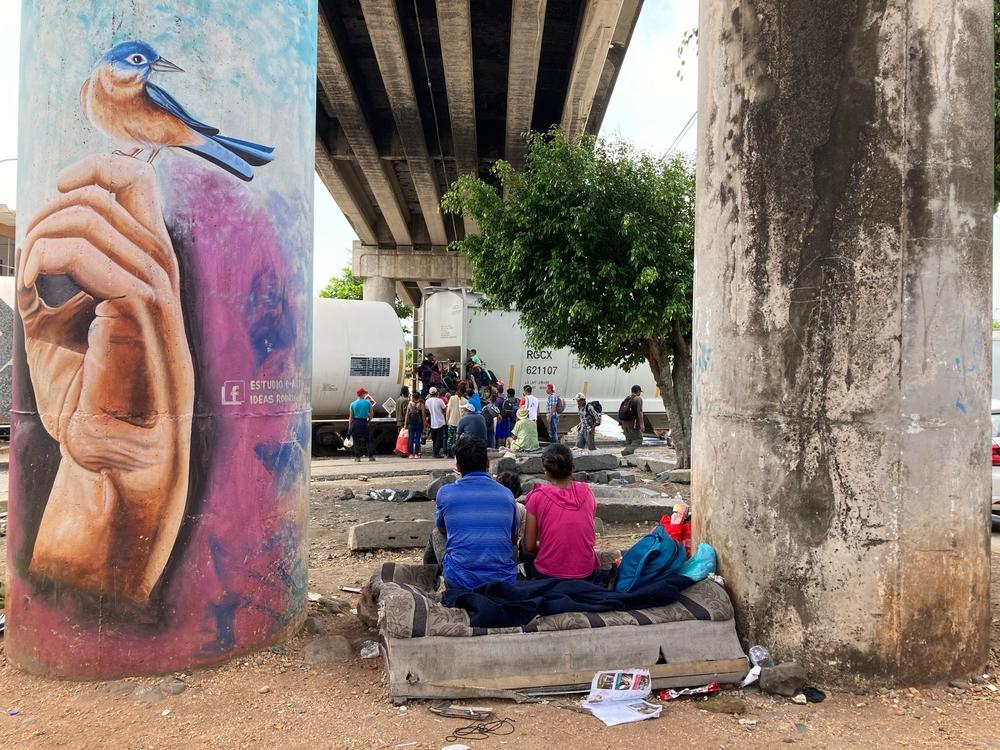
In the context of the pandemic, humanitarian assistance to migrants and asylum seekers is insufficient because the shelters for the population in transit have had to temporarily close their doors or reduce their capacity. Men, women and children sleep under bridges, exposed to disease, police raids and crime. © Yesika Ocampo/MSF
